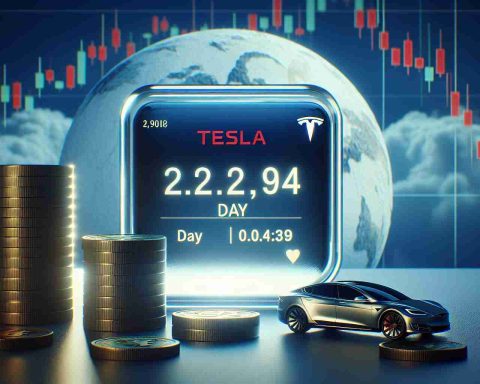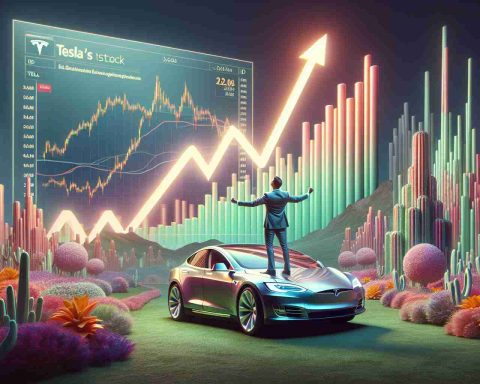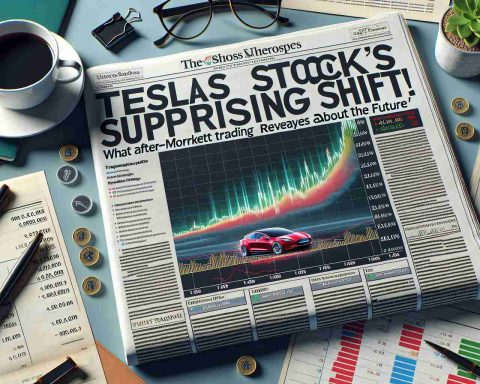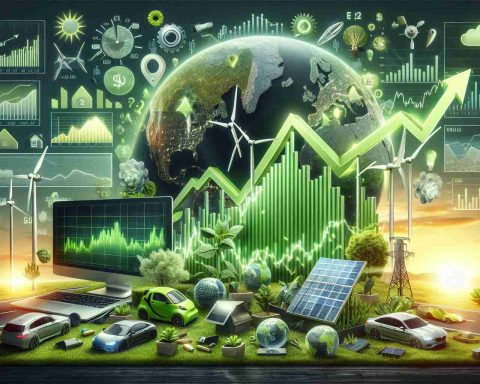Changes in Electric Vehicle Policies Under Trump’s Leadership
Former President Donald Trump has announced plans to dismantle the federal electric vehicle (EV) mandate, signaling a significant shift in policy as he seeks to reshape his administration’s approach towards emissions and energy. His forthcoming executive order aims to challenge the previous administration’s push for greener initiatives, including the $7,500 tax credit for EV buyers.
The executive order hints at the elimination of what it calls “unfair subsidies,” which could jeopardize incentives that have boosted EV adoption. However, observers note that such reforms might face legal hurdles, as altering established laws isn’t straightforward. The complexities surrounding tax codes and environmental regulations make outright elimination challenging.
Experts like Erik Gordon from the University of Michigan have pointed out that while Trump’s actions may indicate a return to traditional automotive strategies, they could lead to delays in EV production already in the pipeline. The automakers, who have invested substantially in electrification, might find themselves reconsidering their trajectories amidst this policy upheaval.
As Trump shifts focus from ambitious EV targets set by his predecessor, industry leaders argue that a withdrawal from electric initiatives could ultimately hinder the U.S. auto industry’s global competitiveness. With consumer demand dictating the future of EVs, the long-term consequences of these policy changes remain uncertain, potentially affecting jobs and production across the sector.
The Broader Impact of Policy Shifts on Electric Vehicles
The recent announcement to dismantle federal electric vehicle (EV) mandates under Trump’s leadership carries implications that resonate beyond the automotive industry. This shift is likely to have significant cultural repercussions, as the move towards greener technologies is often tied to broader societal values centered on sustainability and environmental responsibility. American consumers increasingly prioritize eco-friendliness, and a rollback of EV incentives could detach a vital segment of society from embracing a greener future.
From an economic perspective, retraction of these policies might threaten the burgeoning global EV market, which is projected to reach over $800 billion by 2027. With competition from countries like China and Germany ramping up their investments in electric technology, the U.S. risks falling behind. The existing workforce dedicated to EV production could feel the adverse effects, with potential job losses in sectors tied to electrification, innovation, and technology transition.
Additionally, the environmental ramifications could be dire. The transportation sector is one of the leading contributors to greenhouse gas emissions. A reduction in EV production initiatives could exacerbate climate change and hinder efforts to meet internationally agreed-upon emission targets. The trajectory of U.S. energy policies may impact global climate agreements, shaping future commitments and collaborations.
In the long run, these policy decisions will likely influence public sentiment around sustainability and responsible consumption, ultimately determining the pace at which the society shifts towards a more sustainable future.
Unpacking the Future of Electric Vehicles: Policy Shifts and Their Implications
Changes in Electric Vehicle Policies Under Trump’s Leadership
The electric vehicle (EV) landscape in the United States is undergoing a significant transformation due to proposed policy changes under former President Donald Trump’s administration. His intentions to dismantle the federal EV mandate reflect a broader strategy to reshape the nation’s approach to emissions, environmental regulations, and energy consumption. This shift has sparked widespread debate about the implications for the automotive industry, consumer incentives, and environmental sustainability.
New Policy Insights
Trump’s executive order suggests a critical reassessment of existing incentives, including the $7,500 tax credit aimed at encouraging EV purchases. As he targets what he labels “unfair subsidies,” the potential elimination of these incentives poses a serious threat to the growth of the EV market. Notably, the previous administration promoted these incentives to stimulate EV adoption as part of a broader commitment to combat climate change.
Challenges and Legal Hurdles
While Trump’s administration can propose changes, the pathway to implementing them involves navigating complex legal terrains. Tax incentives and environmental regulations are embedded in various laws that may not be easily altered. Experts assert that efforts to eliminate long-standing regulations and subsidies may face significant legal challenges, thereby complicating the process and timelines for these changes.
Industry Response and Competitiveness
The response from automakers has been one of cautious optimism tempered with concern. Major manufacturers have committed billions towards electrification, leading to the production of numerous EV models planned for the near future. However, the uncertainty surrounding federal support could lead to a reevaluation of these investments. If the administration’s policies shift back towards traditional automotive strategies, the competitive edge that the U.S. auto industry has been striving for in the global EV market may diminish.
Consumer Demand and Market Trends
Market dynamics indicate that consumer preferences are inherently shifting towards more sustainable vehicle options. Despite potential policy changes, the demand for EVs continues to rise as consumers become more environmentally conscious. In this context, automakers are likely to pursue innovation and sustainability irrespective of government directives. The dual pressures of consumer demand and industry competition could drive ongoing advancements in EV technology.
Innovations in the EV Sector
Despite shifting policies, innovations in electric vehicle technology remain robust. Key trends include developments in battery technology, which aim to improve range and reduce charging times. Furthermore, advancements in autonomous driving and smart vehicle integration highlight a future where EVs could play a central role in reshaping transportation.
Predictions and Market Analysis
As we look ahead, analysts predict that political landscapes will continue to influence the EV market. Depending on the forthcoming legislative outcomes and consumer behavior, the U.S. may either lead or lag in the global EV race. A commitment to sustainability, supported by legislation and consumer investment, will be crucial for maintaining competitive advantages.
Conclusion
The landscape of electric vehicles in the U.S. is poised at a crossroads with potential policy changes under the Trump administration. The intricate interplay between consumer demand, automotive innovation, and federal regulations will shape the future of electric vehicles. The long-term effects on jobs and production in the automotive sector could be significant, placing an emphasis on the importance of strategic policy decisions and industry adaptability.
For more insights into the evolving EV landscape, visit Energy.gov.



















